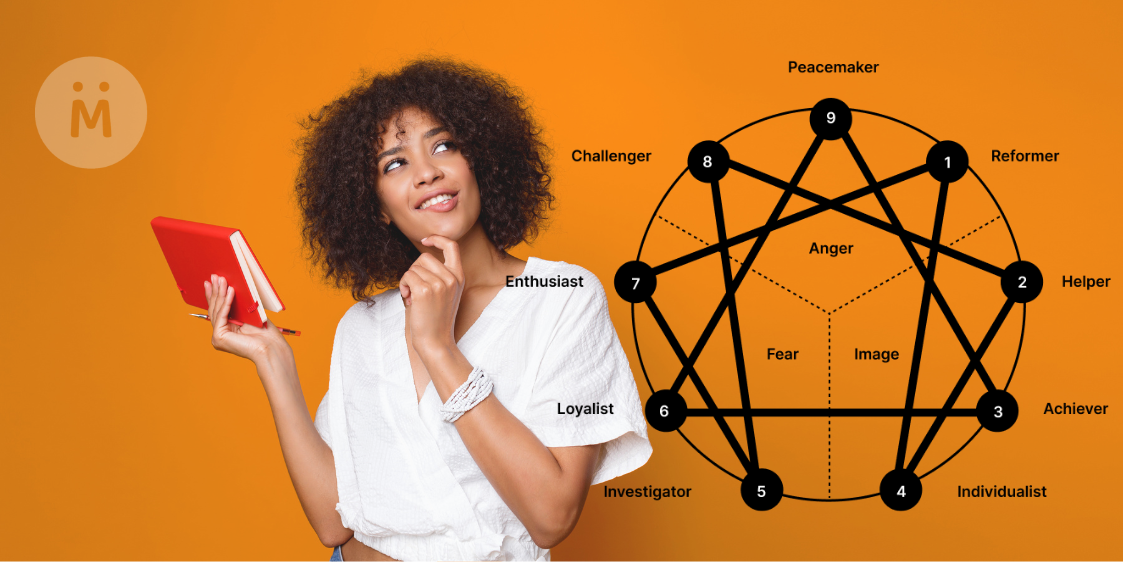How Enneagram Tests Can Be Used in Therapy
Margo Plater

Individual Therapy
In individual therapy, Enneagram tests can be used as a starting point for discussion and exploration. Identifying one's Enneagram type can be beneficial.
It can provide insight into the motivations and fears that drive behavior. This understanding can aid in working through personal issues and challenges. Enneagram tests can also be used to identify potential blind spots or areas for growth, which can be particularly helpful in long-term therapy.
Couples Therapy
In couples therapy, Enneagram tests can be used to help couples understand each other's personality types and communication styles. By identifying each person's Enneagram type, couples can gain insight into how they interact with each other and develop strategies for effective communication. Enneagram tests can also be helpful in identifying potential areas of conflict or disagreement, which can be addressed in therapy sessions.
Group Therapy
In group therapy, Enneagram tests can be used to help members of the group understand each other's personality types and communication styles. This can be particularly helpful in group settings where members may be struggling to communicate effectively or understand each other's perspectives. By identifying each person's Enneagram type, group members can gain insight into how they interact with each other, and in relationships they may have in their life, and develop strategies for effective communication and collaboration.
Using Enneagram Tests in Conjunction with Other Therapeutic Approaches
Enneagram tests can be used in conjunction with other therapeutic approaches, including cognitive-behavioral therapy (CBT), mindfulness-based therapy, and psychodynamic therapy. Let's take a closer look at how Enneagram tests can be used in conjunction with these approaches.
Cognitive-Behavioral Therapy (CBT)
In Cognitive Behavioral Therapy (CBT), Enneagram tests can be used to help clients identify patterns of negative thinking and behavior. By identifying their Enneagram type, clients can gain insight into their underlying motivations and develop strategies for changing negative patterns of behavior. For example, a Type One client who tends to be self-critical may benefit from identifying their Enneagram type and learning to be more self-compassionate.
Mindfulness-Based Therapy
In mindfulness-based therapy, Enneagram tests can be used to help clients develop self-awareness and self-compassion. By identifying their Enneagram type, clients can gain insight into their underlying motivations and develop mindfulness practices to help them stay present and non-judgmental. For example, a Type Nine client who tends to avoid conflict may benefit from identifying their Enneagram type and learning to be more assertive.
Psychodynamic Therapy
In psychodynamic therapy, Enneagram tests can be used to help clients understand how their childhood experiences and early relationships have shaped their personality. By identifying their Enneagram type, clients can gain insight into the underlying motivations that drive their behavior, which can be helpful in exploring unresolved issues from the past. For example, a Type Six client who tends to be anxious may benefit from identifying their Enneagram type and exploring how their childhood experiences have contributed to their anxiety.
Key Takeaway
Enneagram tests can be a valuable tool in therapy, helping clients gain insight into their own behavior and develop strategies for personal growth and self-awareness. While Enneagram tests are not scientifically validated, many therapists and individuals have found them to be a helpful way of understanding personality and underlying motivations. By using Enneagram tests in conjunction with other therapeutic approaches, therapists can help clients develop a deeper understanding of themselves and work towards their goals. Take the Enneagram test today!



